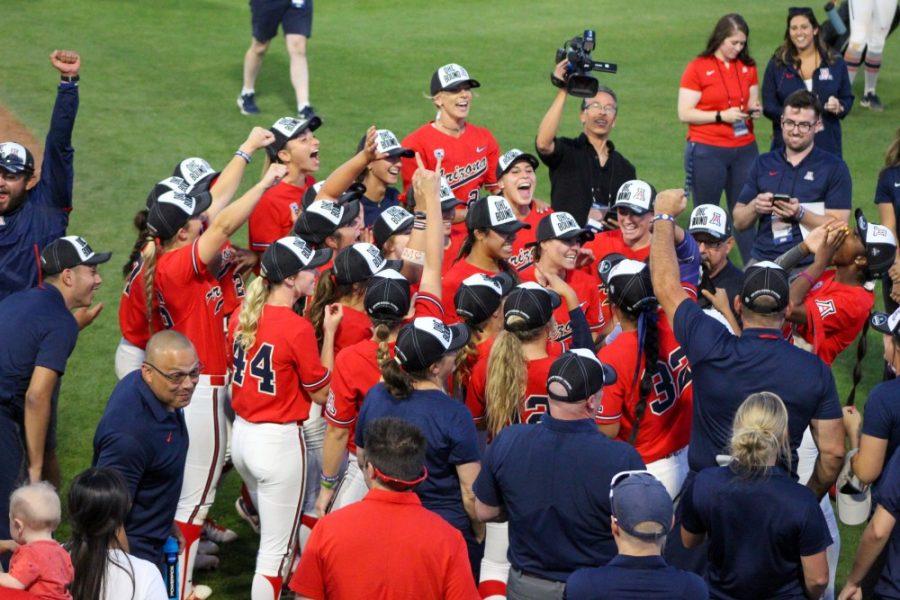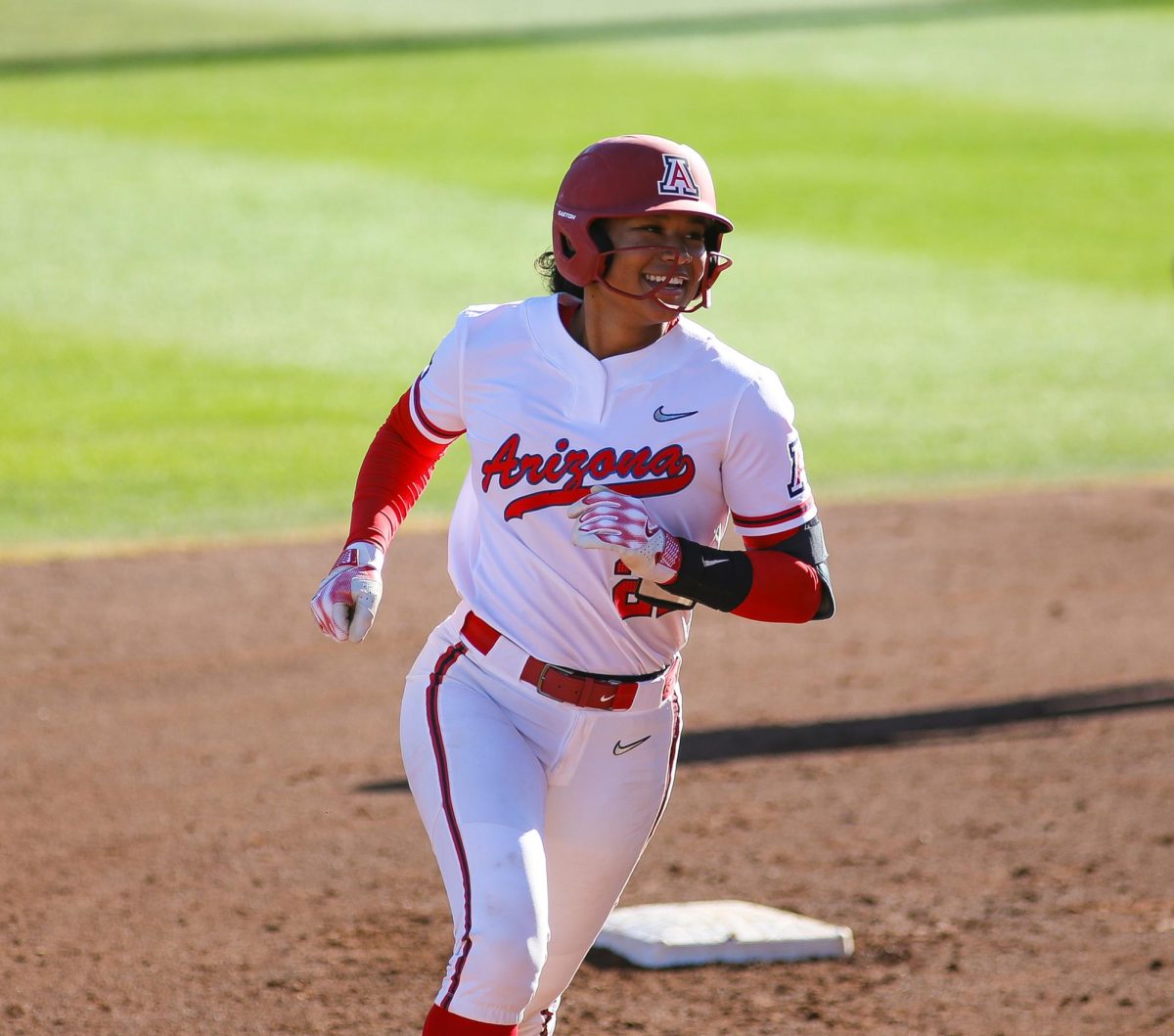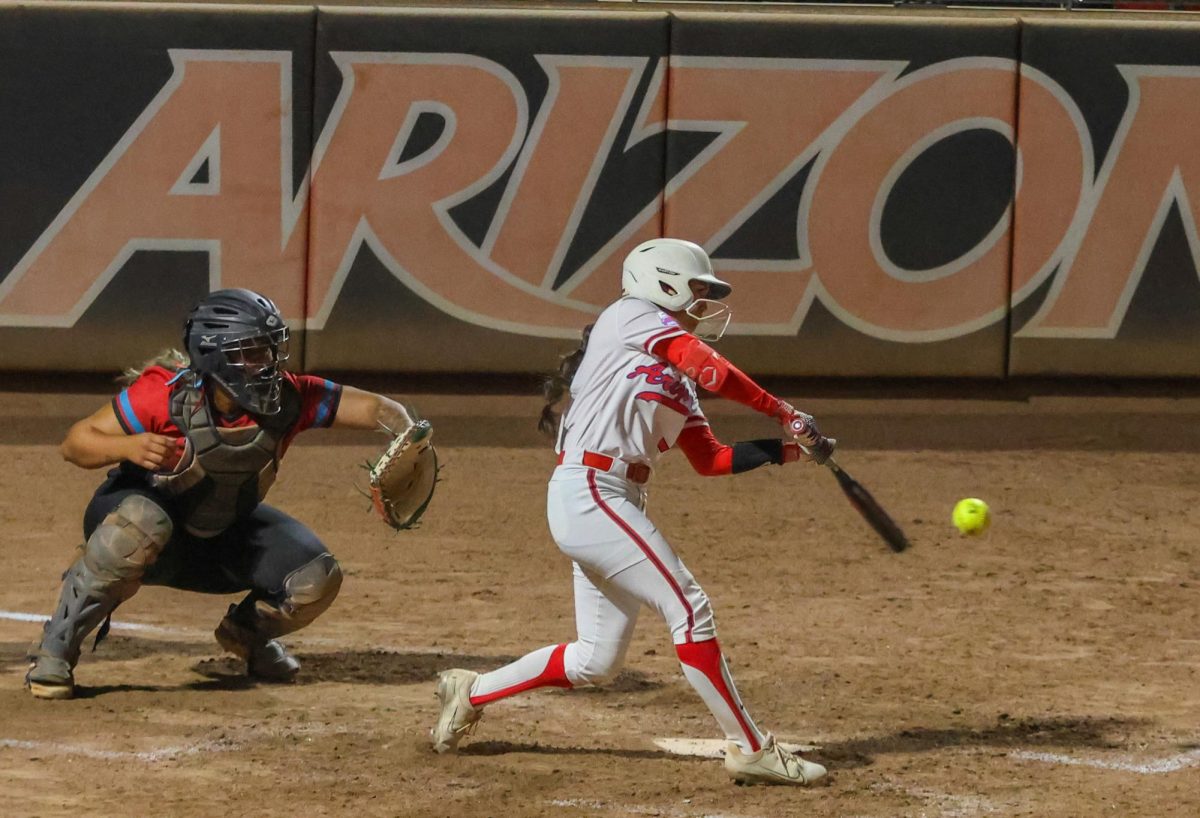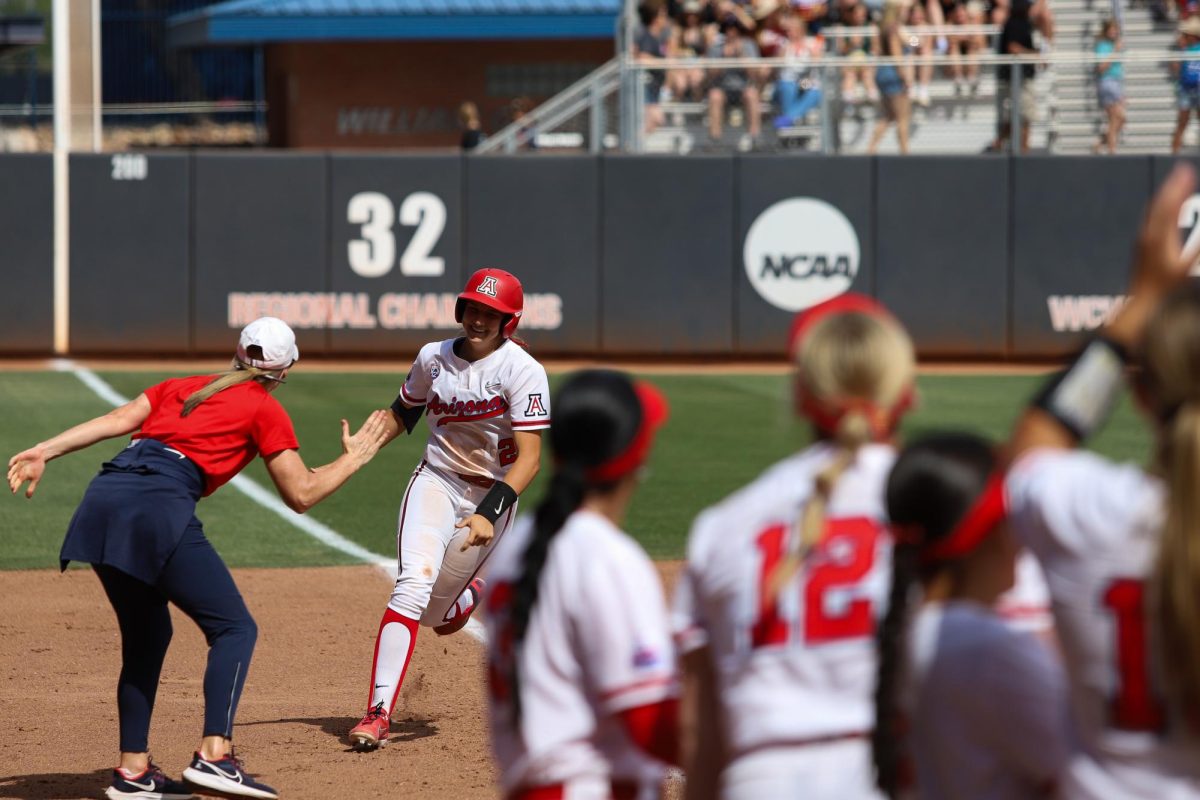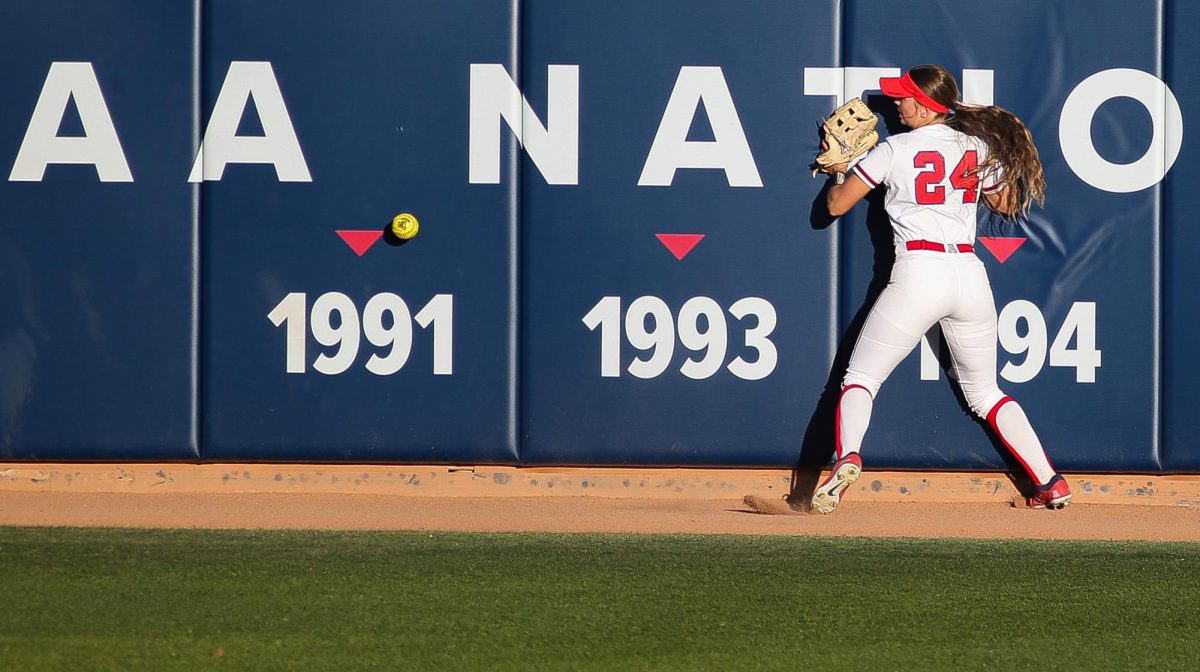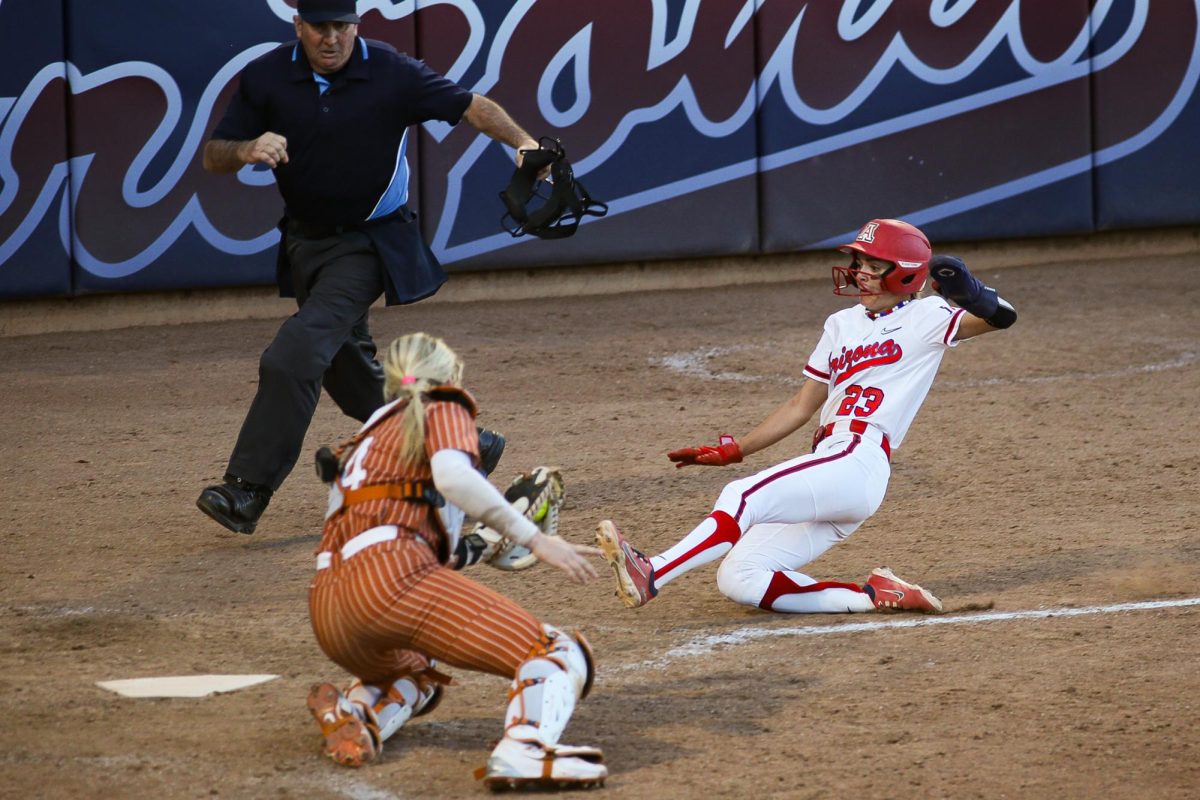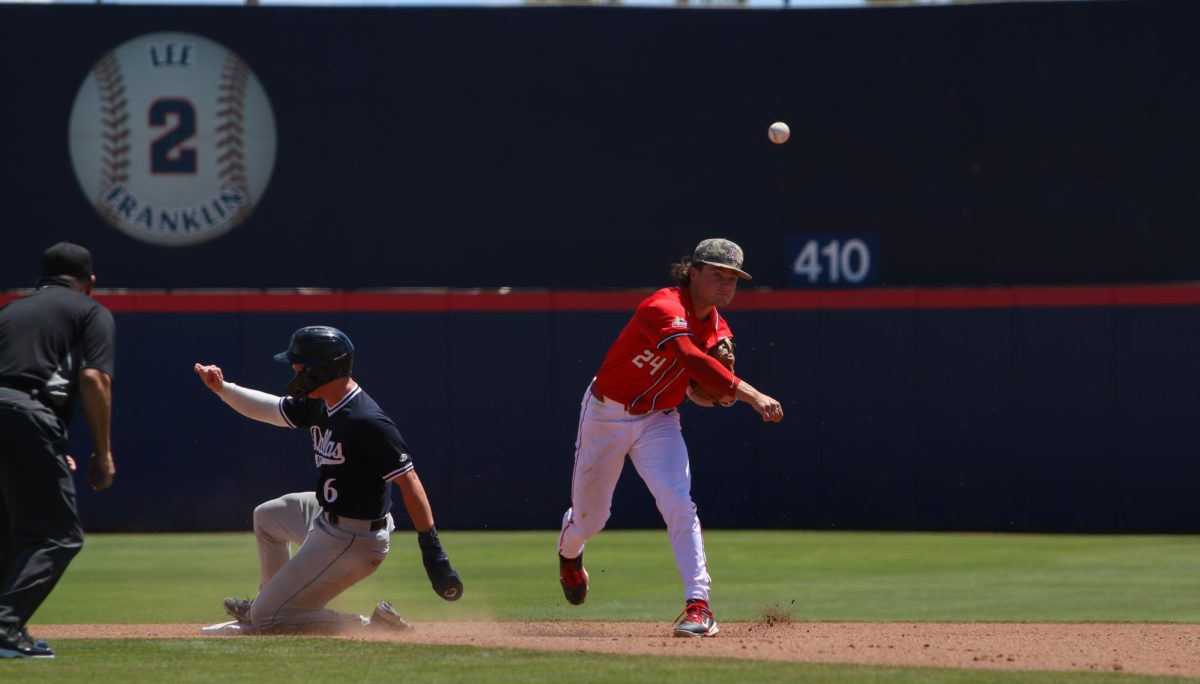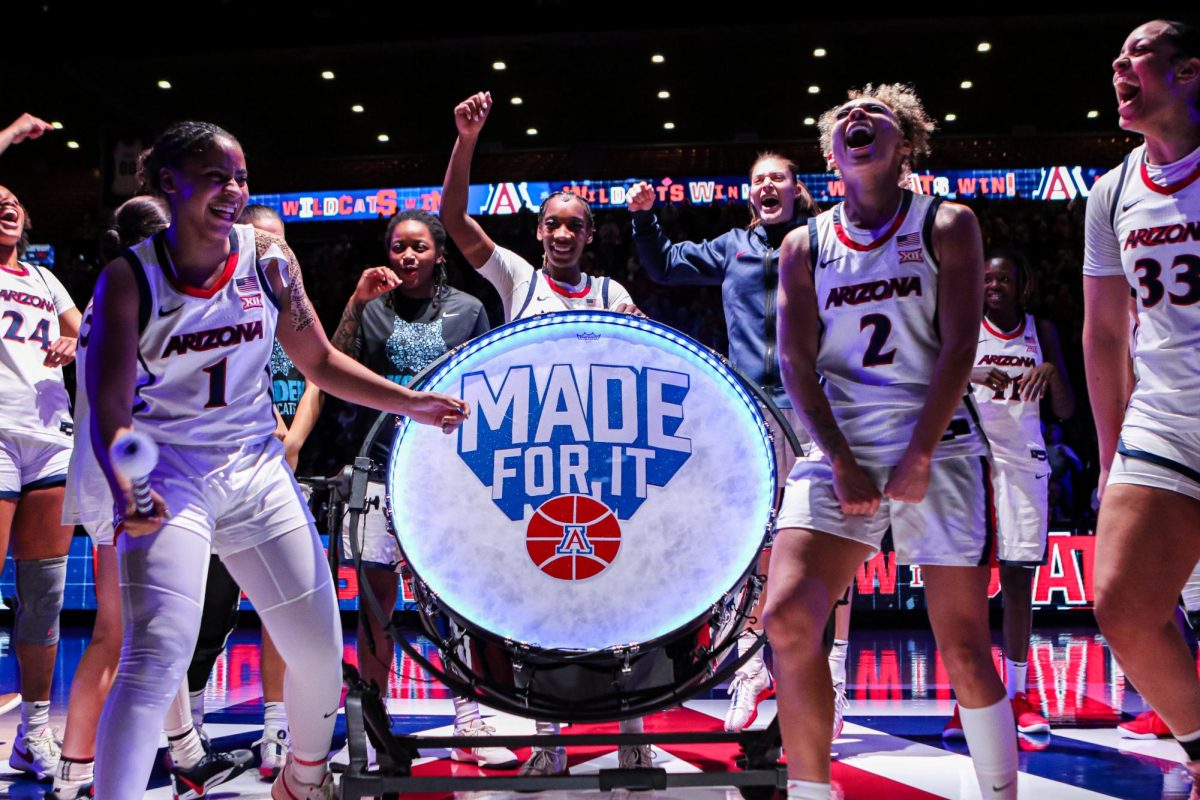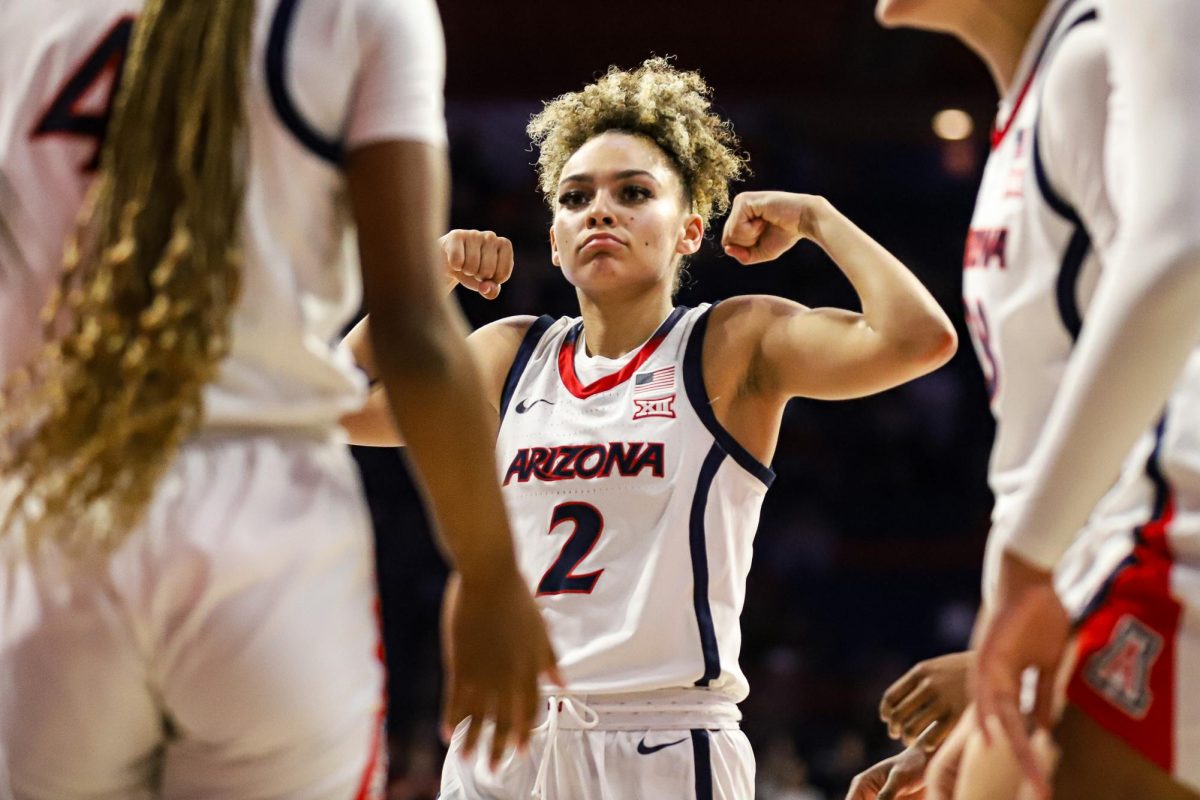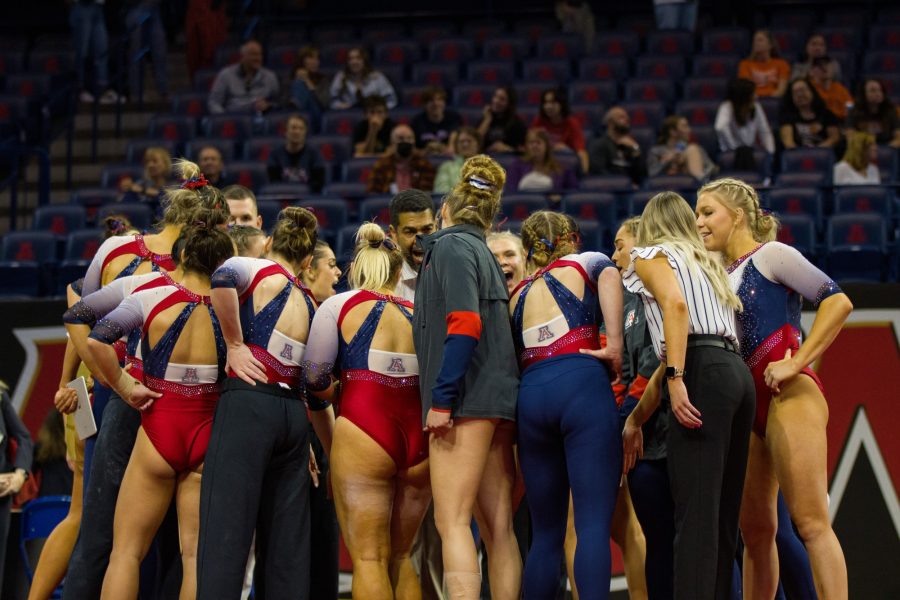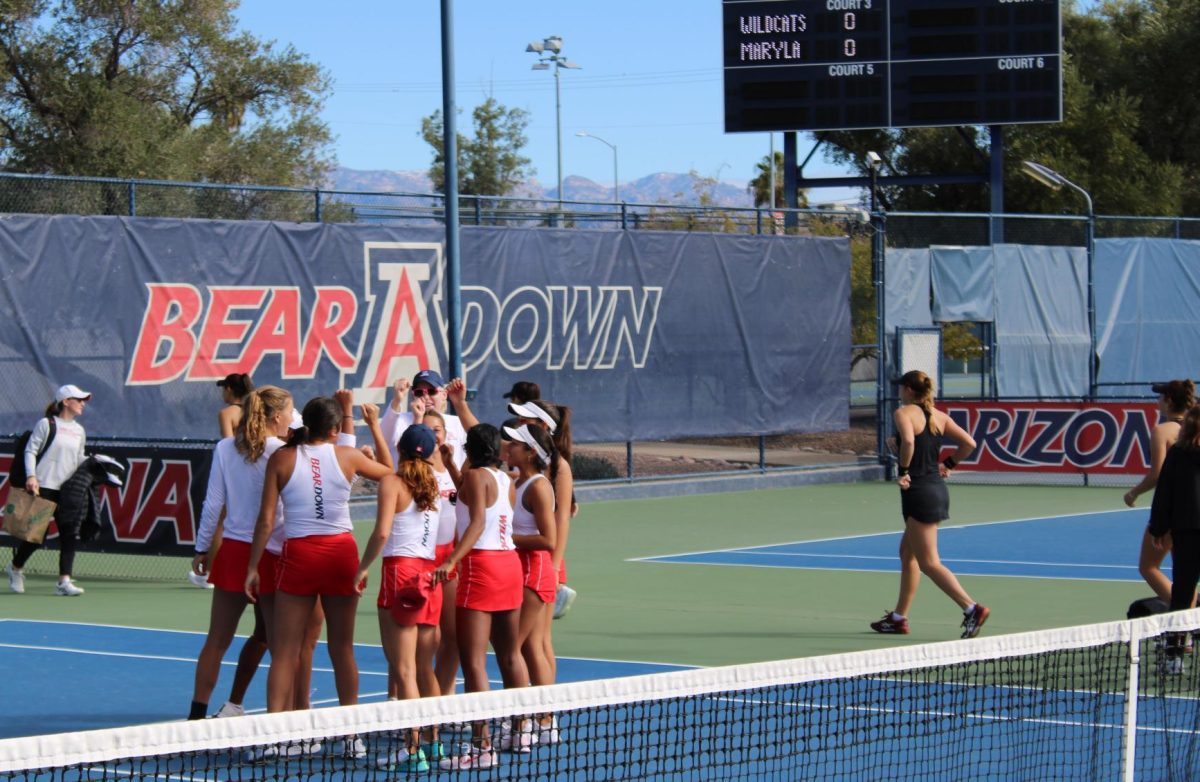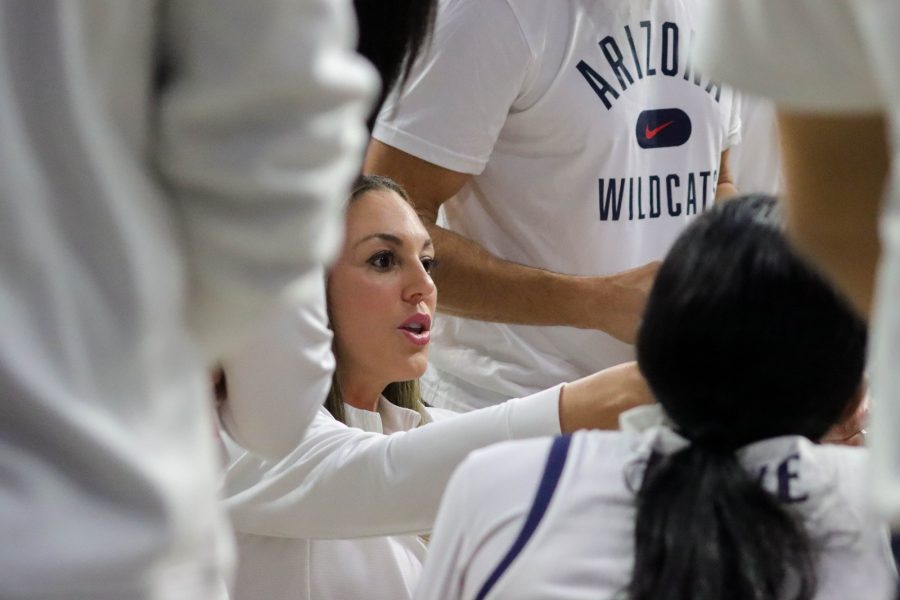It was not supposed to end like this. The Arizona Wildcats softball team ranked No. 4 in the country with a 22-3 record and riding a 11-game win streak into their most important part of the season.
Just by watching, you could see this team was built differently. The winning mentality and championship DNA was ingrained into the roster, with its strong senior class as the nucleus.
You couldn’t help but think this team was bound for something bigger. Something beyond a conference championship. Something that this program grew accustomed to over the years during the Jennie Finch era in the 1990s.
But that was all in the past. This year’s team was looking to relive the championship moments in their own way and bring the dominant reputation back to Arizona by attempting to win its ninth national championship in program history.
The storyline was already writing itself out. Senior shortstop Jessie Harper was 19 home runs away from breaking the all-time record for most homers in an NCAA career.
Senior aces Mariah Lopez and Alyssa Denham displayed a chemistry unlike any other between two pitchers with their below-two ERAs and combined 151.1 innings pitched this season.
The Wildcats were overcoming a departure from their star catcher Dejah Mulipola, who was prepping to represent Team USA at the 2020 Summer Olympics.
Everything had been set up to unravel like a perfect narrative. That was until the NCAA and Pac-12 conference released an official statement on March 14 cancelling all sports for the remainder of the academic year due to the outbreak of the coronavirus.
The news hit hard throughout the entire team as head coach Mike Candrea poured out his emotions into a letter he wrote after the official statement.
“Our team meeting this past Thursday following the cancelation of our season was one of the most difficult moments in my 45-year coaching career,” Candrea wrote in his letter to the public.
“Every once in a while we are reminded that life outside the white lines matters much more than the game we play inside of them,” Candrea wrote. “And while I try constantly to instill that in our players, nothing can quite prepare you for the news that we’ve dealt with in the past days. These are incredibly difficult times worldwide and this serves as a reminder that life is so much bigger than any game we will ever play.”
The cancellation of the 2020 season felt like a storm you had been watching on television as it slowly approached closer. You knew it was coming, but the sting of the impact was not reduced once it arrived. Candrea saw the uniqueness of this team not in its potential for greatness, but in the tenacity and personality of each of the players.
“The 2020 team will always hold a special place in my heart, not because of what we accomplished or what I believed we may have accomplished in the future, but because every day I was able to coach them was an honor and privilege,” Candrea wrote. “They were an incredible team on the field, but an even better group of young ladies to be around at practice, in the weight room, in study hall, at team meals, everywhere. This team was a special group that did things with high character, and I am proud to be their coach.”
A heartbreaking end to an unfinished season for the team’s seniors, including Harper, Lopez, Denham, Reyna Carranco, Malia Martinez and Alyssa Palomino-Cardoza.
The NCAA has since allowed spring student athletes an extra year of eligibility after the tragic conclusion of the season, meaning those six seniors could return to the team in 2021 if they wanted to.
“Council leadership agreed that eligibility relief is appropriate for all Division I student-athletes who participated in spring sports,” an NCAA statement said. “Details of eligibility relief will be finalized at a later time. Additional issues with the NCAA rules must be addressed, and appropriate governance bodies will work through those in the coming days and weeks.”
This is easier said than done for these student athletes, especially for softball, as many of them have already made prior engagements and lined up job opportunities for themselves after this coming season.
Teams will also be tasked with balancing who will receive the limited amount of scholarships given by the NCAA every year. Division I softball programs are allowed 12 scholarships every year, which could create financial complications. But these student athletes are given a choice, which is the least the NCAA could do for them.
“I was thrilled on Friday to find out that the NCAA has decided to grant relief for the use of a season of competition for all student-athletes who have participated this spring,” Candrea said. “This will allow our seniors the opportunity to regain their eligibility. I’m so happy for not only our six seniors, but all seniors around the country, who didn’t deserve to see their careers end this way. I know the NCAA has a lot to figure out between now and then, but I’m very thankful they did the right thing and moved quickly and definitively on this.”
Follow Jacob Mennuti on Twitter.



